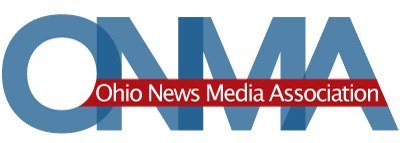Complete Story
01/18/2018
Advisory on actions needed to protect copyright liability
Editor's Note: This is an advisory from Deborah Wilcox, an attorney at ONMA's law firm, Baker & Hostetler, on what you should do to reduce or eliminate potential liability for content posted to your websites that might violate copyright provisions. As always with such advisories, you should consult your own counsel with specific, legal questions. You also can find more information at https://www.copyright.gov/dmca-directory/faq.html.
By Deborah Wilcox, BakerHostetler
This is to inform you of important changes to the copyright infringement safe harbor Designated Agent registration process under the Digital Millennium Copyright Act (“DMCA”) requiring action on your part.
Under the DMCA, anyone considered to be a “service provider” can qualify for safe harbor protection from copyright infringement liability by, among other things, designating an agent to receive notifications of claimed copyright infringement. While the term “service provider” sounds like it only applies to companies that supply internet access, that is not the case. The definition of “service provider” under the DMCA is so broad that it covers anyone providing any form of online service, such as a website, social media pages, blogs, software as a service, or any other form of online location from which some service (even the provision of free information) could be rendered. As a result, virtually everyone online qualifies as a service provider under the DMCA.
As such, you can be liable for any copyright infringing material put online by your customers or third parties through your service, even if you had nothing to do with the posting and you did not know it was there. For example, a user of your service could post a comment that includes infringing content and that could be sufficient to make you liable for infringement.
However, under the DMCA, if you have registered a designated agent with the Copyright Office, and taken certain other steps (see “Other Requirements” below), you may qualify for safe harbor protection. If you qualify, and a copyright owner sends you a compliant infringement notice (called a “takedown notice”), as long as you take down or block the allegedly infringing content expeditiously, it is possible to avoid any monetary liability, and limit any injunctive relief, for the infringement.
In the past, registering a designated agent with the Copyright Office was simple; you filled out a form and mailed it in with payment of the fee. That system has now been replaced with a new registration system, and even if you had previously registered, you now have to reregister. Under the new system, you have to renew that registration every three years.
Other Requirements: It should be noted that registering a designated agent and appropriately responding to a takedown notice are merely pre-requisites to avoiding liability. Depending on the circumstances, other conditions may need to be met to avoid liability, including that you: (1) not be the party that uploaded the allegedly infringing content or be a party otherwise deriving a direct financial benefit from the allegedly infringing content; (2) adopt and reasonably implement a policy of terminating in appropriate circumstances the accounts of subscribers who are repeat infringers, (3) in some Circuits, not moderate or directly curate third party content; and (4) accommodate and not interfere with standard technical measures to identify and protect copyrighted works.




